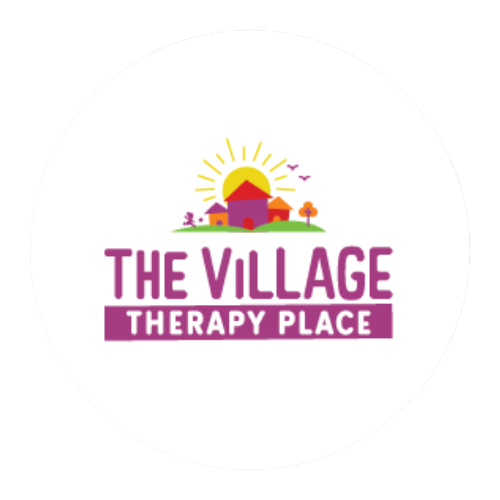Processing the Real Meaning of Auditory Processing Disorders
Authored By Elise Weinstein, CCC-SLP, Speech Therapist at The Village Therapy Place
“Auditory Processing” is one of the new buzzwords recently. Sometimes, this term is used inappropriately to describe any child who has difficulty comprehending language.
So, what is it really?
Let’s start by defining auditory processing and how it differs from auditory acuity.
Auditory Acuity- how well we hear sounds
How is it tested?
Audiologists assess auditory acuity by measuring how loud sound needs to be for a person to hear various pitches.
What are Average Scores?
A person who can hear all pitches at normal ranges (0-25 dB for an adult; 0-15 for a child) is described as having “normal hearing” or “hearing within normal limits.” Children who hear between 15-25 dB are considered to have slight hearing loss which may still affect their language development (as compared to adults who may function well with slight hearing loss due to their advanced abilities to compensate for the sounds they do not hear well).
When is there a Problem?
A person who needs sound to be louder is described as having “hearing loss.”
Auditory Processing- what we do with what we hear; how our central nervous system (CNS) understands the sounds we hear
How is it tested?
Audiologists assess auditory processing through administering a battery of tests to quantify how well the auditory system understands sounds that are heard.
What are Average Scores?
A person with average scores not only hears auditory information well but can process that information appropriately too.
When is there a Problem?
A person who struggles with auditory processing tasks in the absence of hearing loss or other related disorders (e.g. cognitive disorders, other language disorders, ADD/ADHD) is described as having an auditory processing disorder (APD).
How can you tell if your child has an auditory processing disorder?
The only way to truly know if your child has an auditory processing disorder is to have your child assessed by a multidisciplinary team, including an audiologist. To receive an auditory processing diagnosis, your child should:
1) HAVE hearing within normal limits (assessed by an audiologist)
2) HAVE difficulties/delays when given auditory processing assessments (assessed by an audiologist)
3) NOT HAVE another disorder which better explains the reason for the difficulty (e.g. cognitive disorder, language disorder, ADD/ADHD, etc.- this is the multidisciplinary portion)
What signs would I see that would indicate that my child may have an APD?
Your child may:
· Ask “huh?” or “what?” frequently
· Have difficulty remembering directions, or only remember the last part of the direction
· Tend to select the last choice offered
E.g. Do you want chocolate or vanilla? “vanilla”
Do you want vanilla or chocolate? “chocolate”
· Rely on pictures cues when listening to stories
E.g. Child may have difficulty understanding parts of the story not depicted in pictures.
· Have difficulty focusing in noisy environments
E.g. Child may show poor attention or not understand speech in noisy environments, such as the lunchroom, birthday party, etc.
· Confuse similar sounding words
E.g. pot vs. pop
· Have difficulty understanding tone of voice
· Have trouble with reading and spelling
What will the audiologist assess that I can’t see on my own?
Low-Redundancy Monaural Speech Testing- assesses the child’s ability to understand speech that is compromised (i.e. poor auditory stimulus)
Dichotic Listening Testing- assesses the child’s ability to process information when both ears hear different messages
Temporal Processing Testing- assesses child’s ability to understanding timing aspects of sound/speech, as well as pattern perception
Binaural Interaction Testing- assesses how both ears work together (e.g. to determine where sound is coming from)
Based on the results of testing, the audiologist will determine if a child has an auditory processing disorder, as well as what type of auditory processing disorder the child presents with.
A speech-language pathologist provides follow-up therapy to remediate the auditory processing deficit.
Do you have concerns? Are you worried about your child’s auditory processing? Contact The Village Therapy Place at (201) 201-8220 or office@thevillagetherapyplace.com today to have your child seen by one of our experienced, pediatric speech-language pathologists. Let’s help you best help your child!
About Us:
We, at The Village Therapy Place, located in Bergen County- in Wyckoff, NJ, aim to provide integrative, neurodevelopmental, individualized, pediatric therapy in a warm, fun, and collaborative environment.
We offer pediatric services that include physical therapy, speech therapy, occupational therapy, feeding therapy, and DIR Floortime.
At The Village Therapy Place, we utilize current and evidence-based treatment techniques to help treat your child during his PT, OT, speech therapy, feeding therapy and DIR Floortime session. These include sensory integration, reflex integration, therapeutic listening, Kinesiotape, craniosacral therapy, NDT, BrainGym, feeding therapy, PROMPT, to name a few.
Our expert pediatric therapists offer a variety of treatment options, including 30/45/60 minute sessions, group classes and virtual therapy to best suit your child’s needs.
The pediatric physical therapists, occupational therapists & speech therapists at The Village Therapy Place are in constant contact with a child's caregivers to facilitate lasting change.
Call us today at (201) 201-8220 or email us at office@thevillagetherapyplace.com to speak with a pediatric expert who truly cares!

